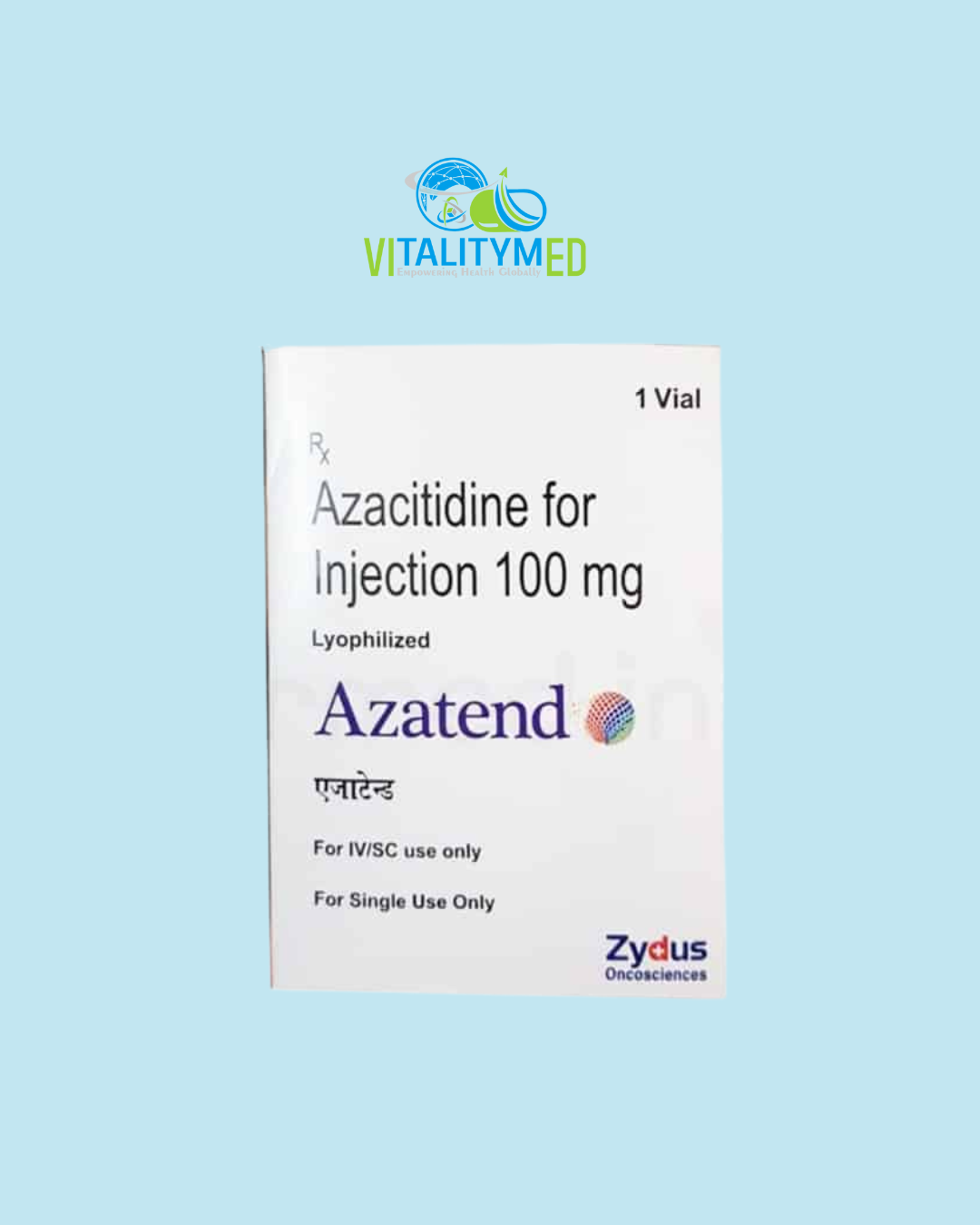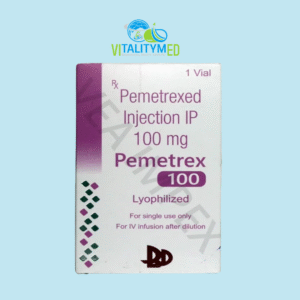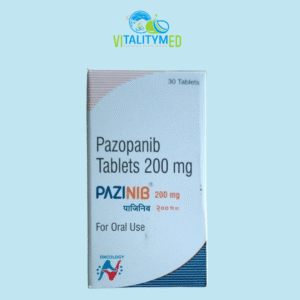Azatend 100 mg contains Azacitidine, a chemotherapy drug classified as a pyrimidine nucleoside analogue and hypomethylating agent. It is most commonly used to treat myelodysplastic syndromes (MDS) and certain forms of leukemia.
Azacitidine works by restoring normal function to blood-forming cells in the bone marrow and reducing the growth of abnormal cells.
Azatend is administered via subcutaneous injection or intravenous infusion, and its treatment regimen is often given in cycles.
Mechanism of Action
Azacitidine acts through a dual mechanism:
-
Hypomethylation of DNA:
-
In MDS and leukemia, abnormal cells often have genes switched off due to DNA hypermethylation (a chemical tag that silences genes).
-
Azacitidine incorporates into the DNA and inhibits DNA methyltransferase, leading to reactivation of tumor-suppressor genes, which helps restore normal cell function and maturation.
-
-
Direct Cytotoxic Effect:
-
Azacitidine is also incorporated into RNA, disrupting abnormal protein synthesis in rapidly dividing cancer cells, leading to cell cycle arrest and death.
Uses / Indications
Azatend (Azacitidine 100 mg) is indicated for:
-
Myelodysplastic Syndromes (MDS):
-
Includes all French-American-British (FAB) subtypes: refractory anemia, RA with ringed sideroblasts (RARS), RA with excess blasts (RAEB), and chronic myelomonocytic leukemia (CMML).
-
Helps improve blood counts and reduce the need for transfusions.
-
-
Acute Myeloid Leukemia (AML):
-
Especially in older adults not eligible for intensive chemotherapy.
-
Used to slow disease progression and maintain quality of life.
-
-
Chronic Myelomonocytic Leukemia (CMML):
-
Particularly effective in lowering the blast count and improving blood cell production.
Adverse Effects
As with most chemotherapy agents, Azacitidine can cause side effects, some of which are related to its effects on fast-dividing cells (like blood and GI cells).
Common side effects:
-
Nausea and vomiting
-
Injection site reactions (pain, redness, swelling)
-
Fatigue
-
Fever
-
Constipation or diarrhea
-
Loss of appetite
Hematologic effects:
-
Low white blood cell counts (neutropenia) → risk of infections
-
Anemia (low red cells) → fatigue, shortness of breath
-
Thrombocytopenia (low platelets) → increased bleeding risk
Less common but serious:
-
Kidney dysfunction
-
Liver enzyme elevation
-
Allergic reactions (rare)
-
-
-
-







